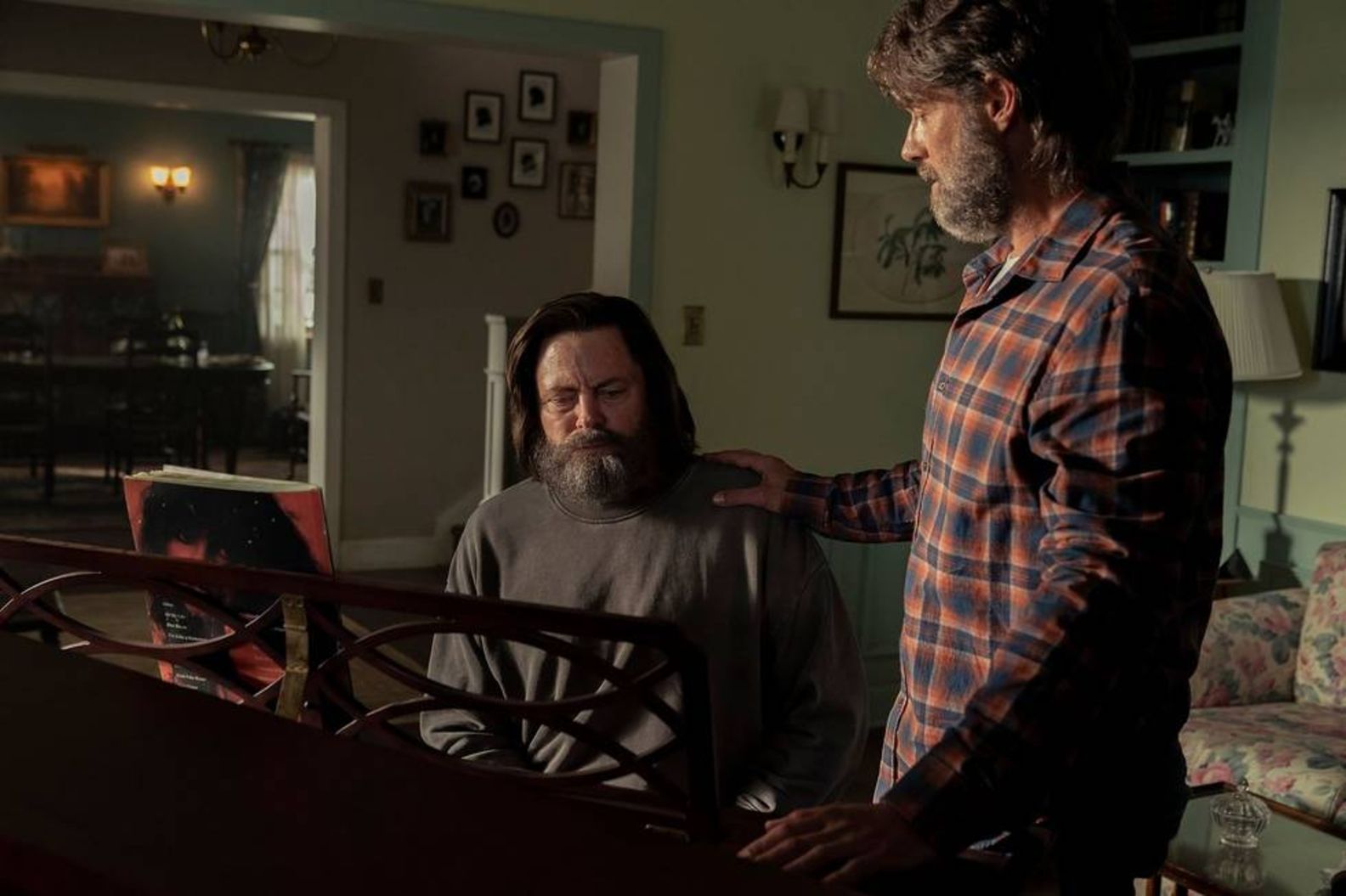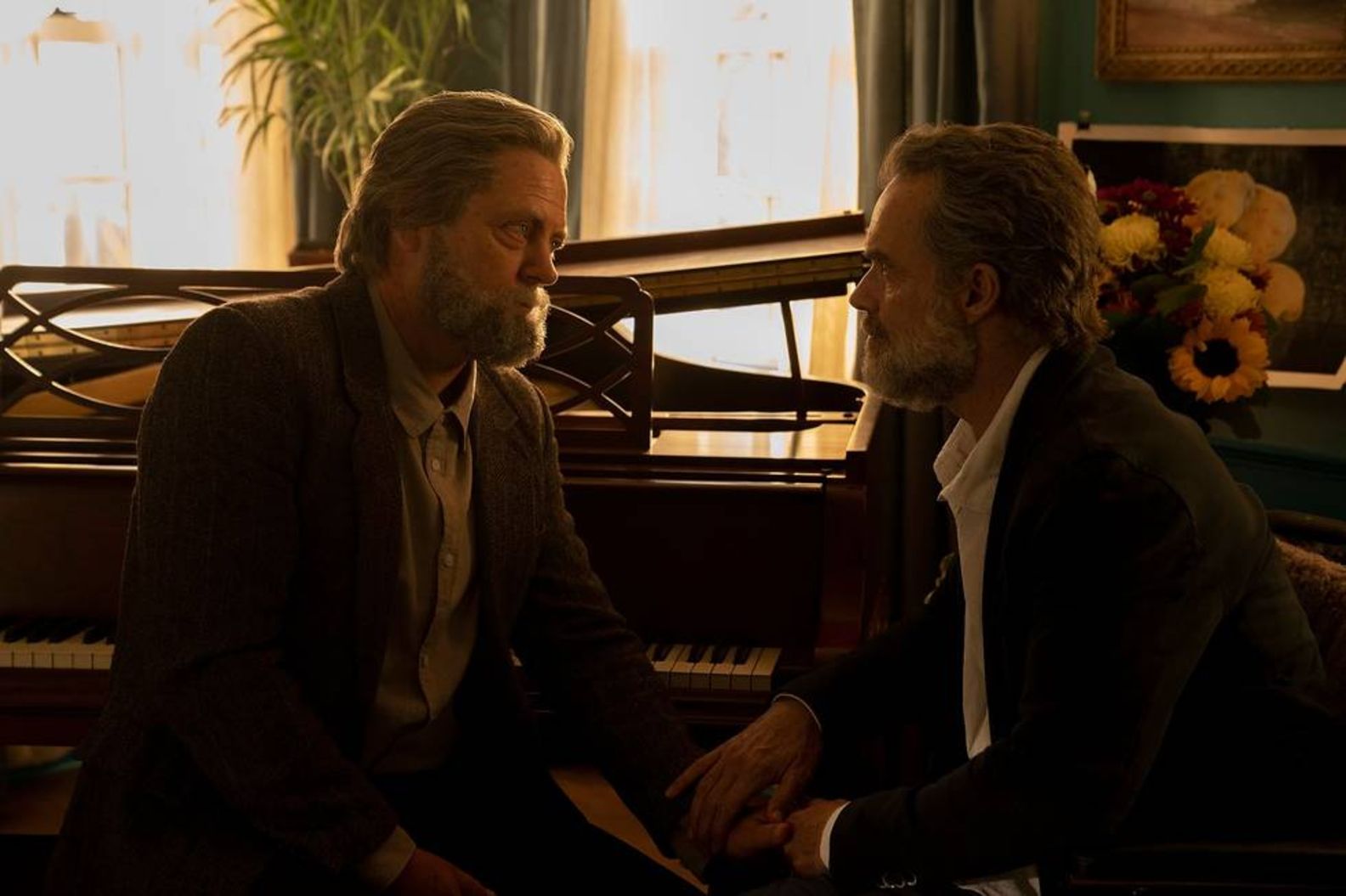Spoilers follow for The Last of Us episode three
Bill always deserved better. The Last of Us originally depicted him as a bitter and untrusting misanthrope, with any meager emotional warmth only surfacing for those closest to him. Joel and Tess spent decades trading with him and learning to survive amidst the apocalypse, and still couldn’t weave their way into his heart, too busy walking into deadly traps made to keep them out. His distrust remains in the HBO show, but it’s lined with love and companionship he has always deserved – far more than a partner hanging himself out of desperation.
The game is deliberately vague about his queerness, hinted at through ambiguous dialogue, crude jokes, and the aforementioned suicide. I’m not against queer characters experiencing hardship in media – it often gives them the agency more obnoxiously positive media takes from them through coddling – but The Last of Us came at a time when harmful bury your gays tropes and regressive stereotypes were commonplace. LGBTQ+ audiences were used to being treated as an afterthought, and here was a character who wasn’t flawless or conventionally attractive, and his identity was used as a means to further the trauma he is already struggling with. The last we see of Bill in the game shows him alone and more isolated than he’s ever been, cutting down the rotting corpse of a loved one as the few friends he has left get what they need and leave him behind. He is never brought up again, left with a fatal resolution of loss and regret that, despite his flaws, is not deserved.
I admire how Naughty Dog were determined to cement the ruthlessness of its world, but to see it double down on flawed queer storytelling with Left Behind convinced me it didn’t quite know how to intimately handle these characters, convinced that death is the only solution to growth in people whose identities are a prominent part of who they are. Riley was built up as a true friend and romantic partner for Ellie, their opposite perspectives bringing them together only for infection to tear them apart. Ellie finds herself and kisses a girl who means so much to her, only to have that bond snatched away because queer people can’t have nice things without consequences. It was tiring back then, and it’s downright archaic now.
The show has already made mention of Riley and cutesy hints to Ellie’s attraction to girls, so I’m convinced it will reclaim the value of her and Riley’s bond similar to Bill and Frank’s own. Some have labelled it as overly saccharine or ignorant of the ruined universe it takes place in, but there is still room for romantic joy and expressions of love amidst the apocalypse. If anything, queer characters like Bill and Frank deserve to unearth more value from these circumstances. The pandemic began in 2003, Bill and Frank both queer, middle-aged men who likely suppressed who they were for decades prior. Now, with nobody around to judge them and a freedom to find themselves, it all falls into place.
Aside from their distant existence, Craig Mazin and Neil Druckmann don’t ignore the reality of survival even while depicting a bittersweet love story. The episode spans two decades, with the town Bill reclaims as the infection dawns giving way to chipped paint and decaying streets as he chooses only to focus on the bare essentials. Frank is the opposite, wanting to make their bastion a home worth caring for, whether it involves doing up ruined shops or a new coat of paint on long-neglected architecture. We see them bicker and reconcile, often keen to recapture pedestrian pleasures that escaped them in a previous life. It’s clear they live for each other and nobody else, finding purpose in the most unlikely companionship.
Frank is barely a character in the game. He’s a rotting corpse and handful of hastily written notes strewn about the place as missable world building, emerging only in fading memories Bill is eager to leave behind. Here he is a foil to a man who has forever wanted to shun the world. He’s built off the foundation of a right-wing doomsday prepper with a bigoted attitude, but the show aims to deconstruct that archetype into something infinitely more sincere. Bill presents signs of trauma and neglect from the past, unsure how to view Frank’s advances and the concept of someone not only finding him attractive, but caring about him in a world determined to twist love into hate. Shedding tears over once forgotten normalcy like picking strawberries from the garden because it means everything when done with someone you love so dearly.
Hardships aren’t sugar-coated either, even if the centre remains sickeningly sweet. Bill and Frank might love one another, yet they’re still alone. Friends like Joel and Tess bring out the paranoid attitude Bill tries so hard to suppress, although it’s worth changing himself for love. One night has raiders attack their compound, set alight by flamethrower traps as Bill is shot in the chaos. He’s bleeding out, determined to give Frank vital information about people who can take care of him in the event of his death. Flourishes like this prove these characters have been through so much together, narrowly avoiding death and saving their respective lives time and time again no matter the cost. Of course the episode skips over some of these and leans into whimsy on occasion, but after past wrongs they deserve this indulgence.
The suicide pact that closes the episode is a brave decision, but a worthwhile one. In the game it made sense for Bill to selfishly retreat inside himself, sticking to his stubborn ways instead of going after his partner. This adaptation first presents him as someone willing to run away from it all only for him to be worn down by love and the responsibility to protect someone who cares about him for the first time in his life. Frank has a terminal illness that will take his life eventually, and instead of resigning to a final few years alone, Bill gives him the fondest farewell possible before laying down alongside him. They fade into eternal sleep having fulfilled their one and only purpose in life – to endure, survive, and save what matters most. When saving isn’t an option anymore, leaving this world together works just as well.
Naughty Dog has failed queer characters and audiences in the past, with this adaptation a reclamation for its mistakes and a way to forgive people both real and fictional who deserved better. Bill and Frank’s journey might end in death, but this demise is one of their own doing, a decision made after two decades spent fostering a life together wrought with trials and tribulations. It wasn’t perfect, but it was all they could have ever hoped for.
Source: Read Full Article

